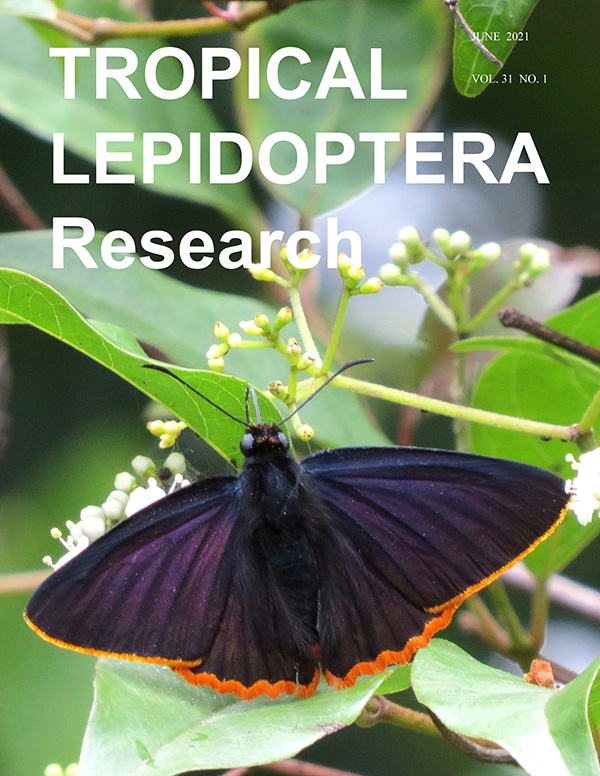Observations on the behavior and diet of the Harlequin Taxila haquinus haquinus Fabricius 1793 (Lepidoptera: Riodinidae) in Singapore
Abstract
Taxila haquinus haquinus (the Harlequin) is a moderately rare species in the butterfly family Riodinidae which occurs in Singapore. There is a general lack of information on the autecology of Riodinidae globally, including this species. A series of observations and experiments was therefore conducted to investigate the behavior and diet of larvae and adults of the Harlequin in its natural habitat and in captivity, to provide insights into its autecology and to aid in the design of recovery programmes targeted at this species. We found that resting was the main activity performed by adults of both sexes, with this behavior perhaps partly functioning in thermoregulation. Males spent a larger proportion of their time feeding and in flight, while females ‘hopped’ more than males, in which the butterfly performed a quick, short flight with a maximum duration of 3 seconds, and then alighted on the surface of a plant. Behavioral differences observed between sexes may reflect the priorities for males to search for mates and females to search for suitable oviposition sites. This study is the first to document a female Harlequin ovipositing on a non-host plant species and an interaction between a male and a female in their natural habitat, possibly an aspect of courtship behavior. Adult Harlequin were not recorded feeding on flowers but they were observed extending their proboscis to touch the leaf surface of multiple plant species, although it is not clear whether this behavior represents feeding. Caterpillars, regardless of their instars and the age of the leaf, appeared to be less receptive to feeding on non-host plant species belonging to the same plant family as the known host plant. During a leaf diet test, many individuals died between one and seven days following a switch to non-host plant species. Caterpillars that fed and pupated on non-host plant species also failed to eclose successfully as adults.

